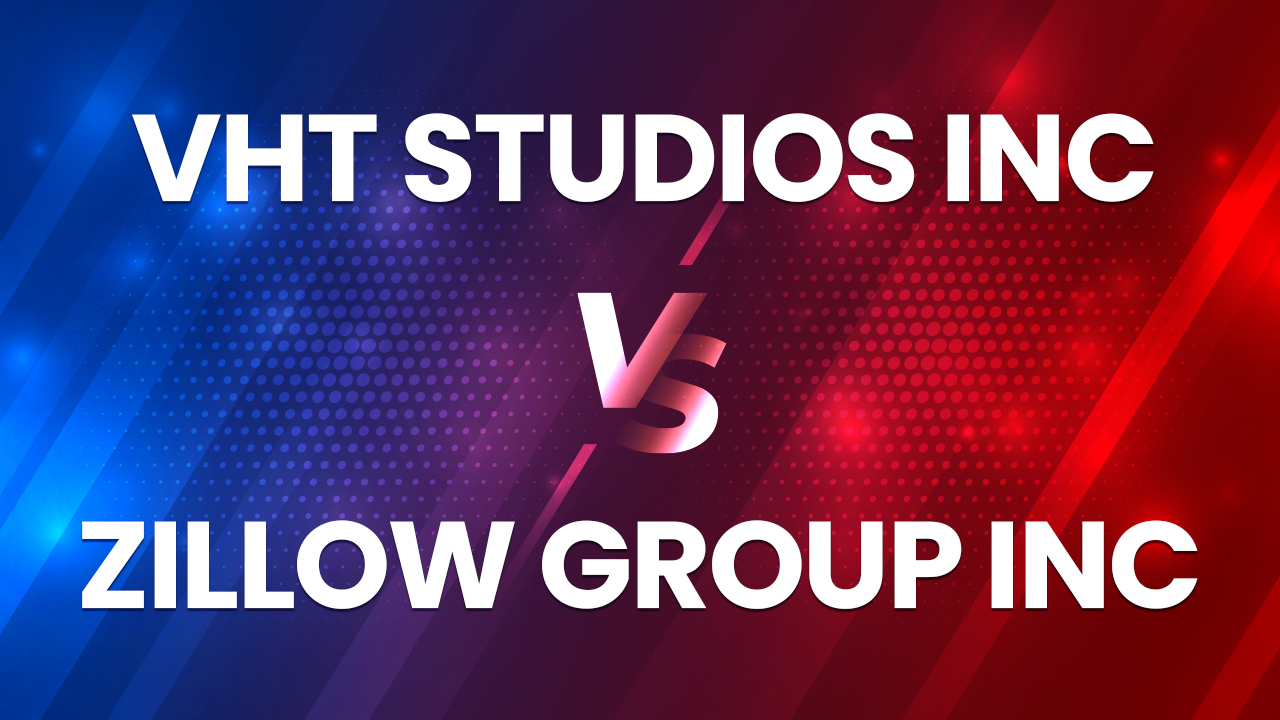Zillow.com Owes $2M to VHT Studios for Copyright Infringement
The Ninth Circuit US Court of Appeals agrees with the lower court’s decision that Zillow’s usage of VHT’s real estate property photos constitutes copyright infringement. In a recent legal battle that has reverberated through the real estate and digital realms, the court case of “VHT Inc. v. Zillow Group Inc” has unveiled significant insights into copyright protection and its intersection with the online landscape.
At the heart of the matter are the use of 28,000 allegedly copyrighted photos on Zillow’s platforms including its main property showcase and a home improvement design section known as Zillow DIGS. The question is: Did Zillow exceed the allowed licensed usage of these photos? Or is Zillow liable for punitive and statutory damages for violating VHT’s media asset copyrights?
Generally speaking the legal issues at hand here are:
1 COPYRIGHTS (photo/media asset ownership)
2 USER-GENERATED CONTENT (media produced by individuals/users) and
3 FAIR USE (What constitutes fair use versus commercial use?)
So what’s at stake here?
Beyond its immediate context, this ruling carries ramifications for various online platforms. This case exemplifies the growing struggle between protecting creators’ rights and nurturing a commercial digital ecosystem’s growth. Platforms will now need to re-evaluate their strategies to prevent infringement while upholding user-driven creativity.
Who is Zillow?
Now we all know that ZILLOW.com is one of the largest real estate websites out there right now -definitely a household name. Launched in 2006 by 2 former Microsoft Employees, Zillow now boasts to having the largest database of properties with a corresponding popular app and competes with the likes of Realtor.com, Trulia.com, Redfin.com, Apartments.com, FSBO.com and Foreclosure.com.
OK but now who exactly is VHT Inc? Well I’m glad you asked…
Known as VHT Studios and with annual revenues of $20M, they are one of the largest photography and image management services companies in the United States. VHT photographs properties for marketing purposes for the real estate industry, brokerages and listing services such as the MLS. etc etc
Shout out to CEO Brian Balduf for keeping the headquarters in Rosemont, IL which is near my home town of Chicago – after the ownership moved to California. And that is one of the reasons I am covering this industry story is because this involves a Chicago-based/Once Chicago Owned industry giant… I like to keep up with Illinois Real Estate Specific News as I am also licensed to perform my Realtor services in Illinois also.
The LEGAL BATTLE: VHT Inc versus Zillow Group Inc
Zillow argued that IF their use of VHT’s photos that were USER-GENERATED did not comply under FAIR USE which is a legal doctrine that promotes freedom of expression by permitting the unlicensed use of copyright-protected works in certain circumstances…. THEN they should be liable for statutory damages for infringing on ONE WORK only which would then be just a singular $750 to $30K total fine…. Not a fine in the millions of dollars.
The Ninth Circuit Court agreed with Zillow that VHT failed to provide evidence showing that Zillow exercised control; selected any material for upload, download, transmission, or storage; or instigated any copying, storage or distribution of the photos – because they were USER-GENERATED. The court panel also held that VHT did not present substantial evidence that Zillow, through the Digs platform, directly infringed its copyright rights in 22,109 not displayed photos and 2,093 displayed but non-searchable photos. However, the fair use defense did not absolve Zillow of direct liability for 3,921 displayed, searchable Digs photos.
As a result, the appeals court agreed with VHT that Zillow did infringe on 2700 photos that had independent economic value and that was not considered part of the ONE WORK/COMPILATION argument. CONSEQUENTLY, VHT was awarded statutory damages for those 2700 infringements only. Which turns out to be about $750 per photo infringed.
Ok, it’s time for a little MATH and Case History
So let’s rewind a bit to get the full story here, we need to look at the entire case history.
The original case actually goes back to July 2015 when VHT first won their lawsuit in the US District Court in Seattle and in 2017 where a JURY also sided with VHT and awarded them approximately $80K in actual damages and $8.2M in statutory damages…. The court later reduced that amount to $4M. Now fast forward to July 2023 where the final verdict says Zillow will NOW owe $2M to VHT in damages.
$20m divided by $2Million is 10%
Zillow revenue for the twelve months ending June 30, 2023 was $1.893B, a 10.92% decline year-over-year. Zillow annual revenue for 2022 was $1.958B, a 8.16% decline from 2021. Zillow annual revenue for 2021 was $2.132B, a 31.28% increase from 2020. Zillow annual revenue for 2020 was $1.624B, a 40.79% decline from 2019.
$2B divided by $2M is less than 1%
KEY TAKEAWAYS
1 Be careful of using photos/videos that are not explicitly yours, did not receive permission to use, or that you did not create – OR you may leave yourself open to copyright issues and penalties.
2 Acknowledging the immense value of proper multimedia in the online world. Here we are arguing about photos. They obviously have multilayered value.
3 The importance of having the ability to produce your own multimedia. Pretty self explanatory here on this final takeaway…
KEY ANALYSIS
This case underscores the complex relationship between copyright holders and online platforms. It’s a wake-up call for content-sharing platforms who are responsible to diligently address intellectual property concerns while fostering user-generated content.
This case actually delves into the issue (at the granular level) of copyright registration and copyright timelines. The court acknowledged the evolving nature of copyright law, and considered VHT’s inability to promptly register their images due to recent legal precedents as detrimental to their case.
In essence, the “VHT Inc. v. Zillow Group Inc” verdict signifies a turning point for copyright enforcement in the digital age. It echoes that the online world can’t be a free-for-all forever; rather, it demands accountability and respect for intellectual property rights.
As we navigate the ever-evolving landscape of digital innovation, this case’s legacy will resonate. It reaffirms that balance, respect for creators, and safeguarding digital asset integrity are essential for a sustainable and equitable digital future.




